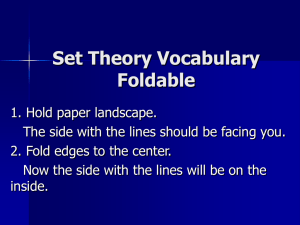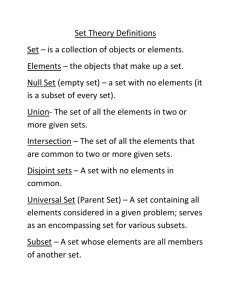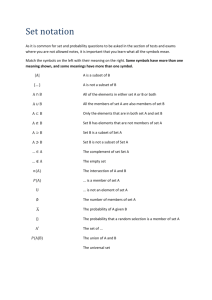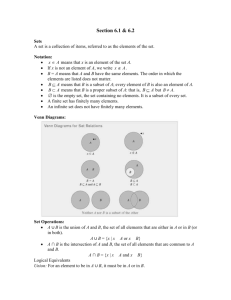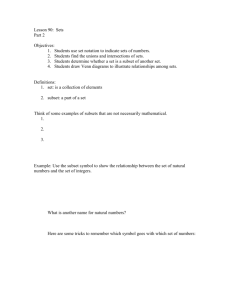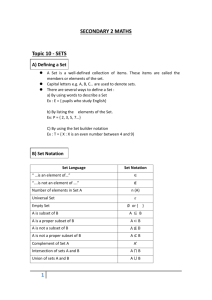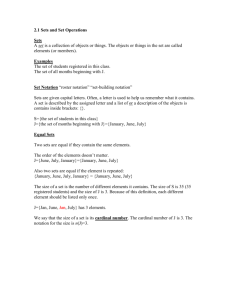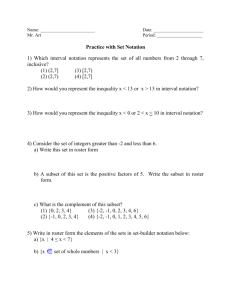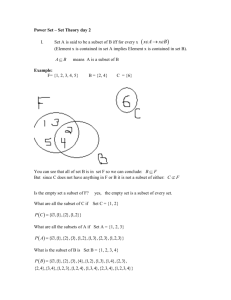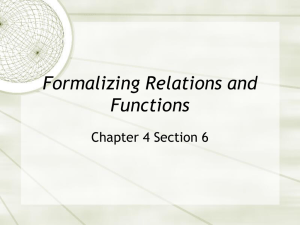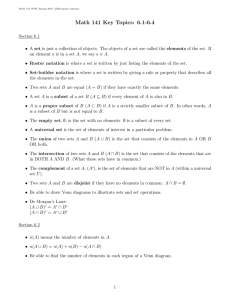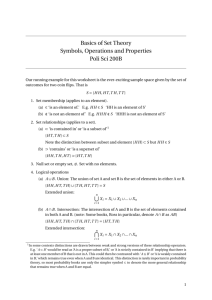Activity #11 - TopCatMath.com
advertisement
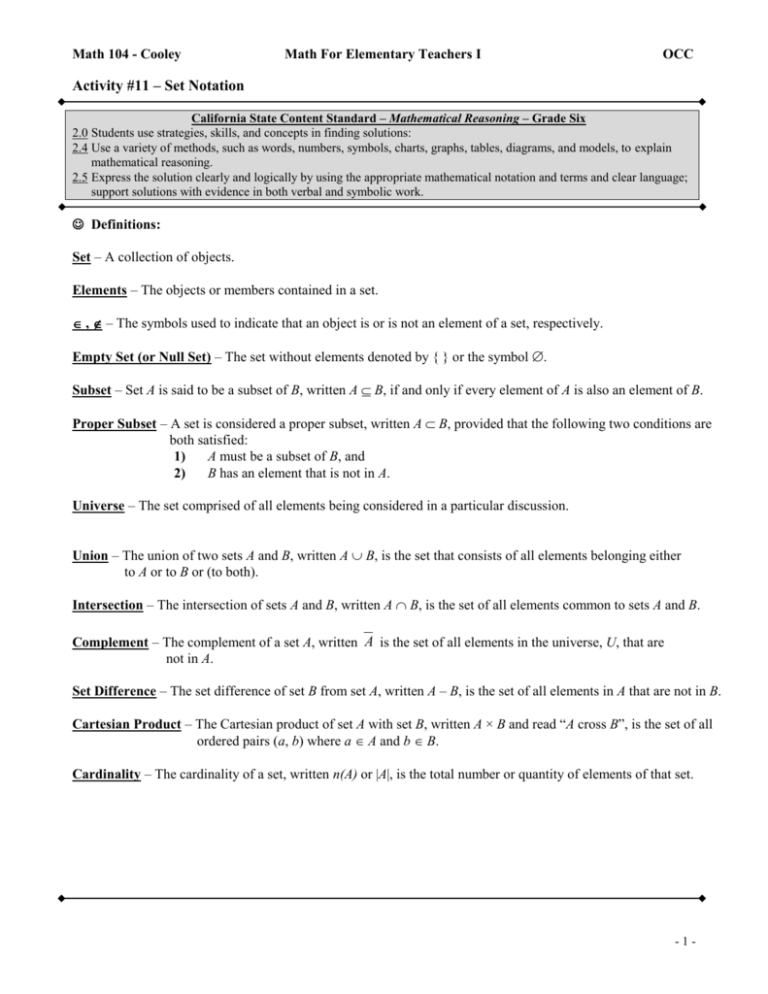
Math 104 - Cooley
Math For Elementary Teachers I
OCC
Activity #11 – Set Notation
California State Content Standard – Mathematical Reasoning – Grade Six
2.0 Students use strategies, skills, and concepts in finding solutions:
2.4 Use a variety of methods, such as words, numbers, symbols, charts, graphs, tables, diagrams, and models, to explain
mathematical reasoning.
2.5 Express the solution clearly and logically by using the appropriate mathematical notation and terms and clear language;
support solutions with evidence in both verbal and symbolic work.
Definitions:
Set – A collection of objects.
Elements – The objects or members contained in a set.
, – The symbols used to indicate that an object is or is not an element of a set, respectively.
Empty Set (or Null Set) – The set without elements denoted by { } or the symbol .
Subset – Set A is said to be a subset of B, written A B, if and only if every element of A is also an element of B.
Proper Subset – A set is considered a proper subset, written A B, provided that the following two conditions are
both satisfied:
1)
A must be a subset of B, and
2)
B has an element that is not in A.
Universe – The set comprised of all elements being considered in a particular discussion.
Union – The union of two sets A and B, written A B, is the set that consists of all elements belonging either
to A or to B or (to both).
Intersection – The intersection of sets A and B, written A B, is the set of all elements common to sets A and B.
Complement – The complement of a set A, written A is the set of all elements in the universe, U, that are
not in A.
Set Difference – The set difference of set B from set A, written A – B, is the set of all elements in A that are not in B.
Cartesian Product – The Cartesian product of set A with set B, written A × B and read “A cross B”, is the set of all
ordered pairs (a, b) where a A and b B.
Cardinality – The cardinality of a set, written n(A) or |A|, is the total number or quantity of elements of that set.
-1-
Math 104 - Cooley
Math For Elementary Teachers I
OCC
Activity #11 – Set Notation
Exercises:
True or False. Let A = { c , s , l , b }, B = { c , s , l }, and C = { c , s , l , b }
_____ 1)
cA
_____ 2)
gC
_____ 3)
cC
_____ 4)
bB
_____ 5)
BA
_____ 6)
AB
_____ 7)
BA
_____ 8)
CA
_____ 9)
AC
_____ 10)
CA
_____ 11)
AC
_____ 12)
CB
Let U = { 1 , 2 , 3 , 4 , 5 , 6 , 7 , 8 , 9 , 10 , 11}
Let A = { 1 , 3 , 4 , 7 } ; B = { 1 , 5 , 6 } ; C = { numbers that contain the numeral 1 } ;
D = { odd numbers } ; E = { 2 , 4 , 6 , 8 , 10 } ; F = { multiples of 3 } ; G ={ 8 , 9 }
List the elements of the following sets. Make sure you use the notation of sets { }:
13)
AB
20)
DA
14)
BG
21)
A D
15)
AB
22)
A D
16)
DE
23)
n(E)
17)
D
24)
U
18)
BG
25)
n( A G)
19)
AD
26)
|EF|
Answers:
1) T; 2) T; 3) F; 4) F; 5) T; 6) F; 7) T; 8) T; 9) T; 10) F; 11) F; 12) F; 13) {1, 3, 4, 5, 6, 7};
14) {1, 5, 6, 8, 9}; 15) {1}; 16) { }; 17) {2, 4, 6, 8, 10}; 18) {(1, 8), (1, 9), (5, 8), (5, 9), (6, 8), (6, 9)};
19) {4}; 20) {5, 9, 11}; 21) {2, 4, 5, 6, 8, 9, 10, 11}; 22) {2, 6, 8, 10}; 23) 5; 24) { }; 25) 11; 26) 10.
-2-
